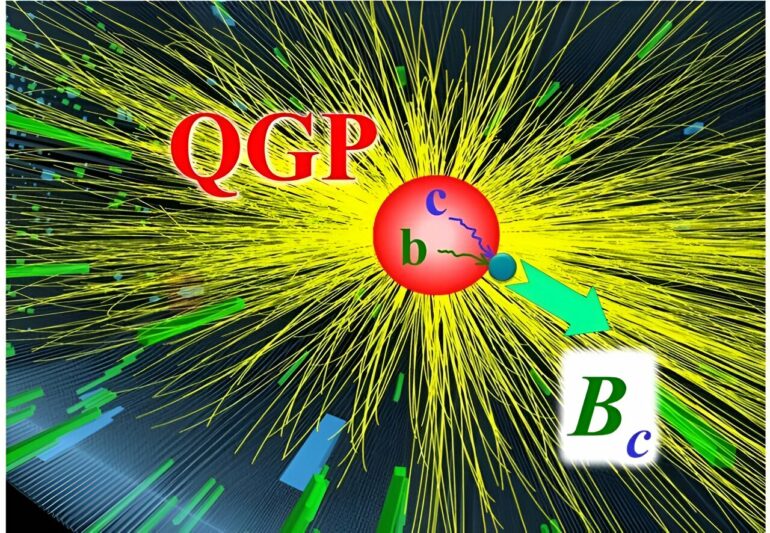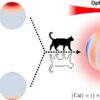Researchers from the HEFTY Topical Collaboration investigated the recombination of charm and bottom quarks into Bc mesons in the quark-gluon plasma (QGP). They have developed a transport model that simulates the kinetics of heavy-quark bound states through the expanding QGP fireball formed in high-energy heavy-ion collisions. Previous research has successfully used this model to describe the production of charm-anticharm and bottom-antibottom bound states, and thus can provide predictions for Bc particles (charm-antibottom bound states).
The paper is published in the journal Physical Review C.
A QGP formed in high-energy heavy-ion collisions only lasts for a short time before disintegrating into thousands of particles that can be observed in detectors. These detectors track signatures—the signals produced by specific types of particles. The discovery and study of QGP formation in heavy-ion experiments requires signatures that do not occur in other types of collisions, such as proton-proton collisions.
In this study, researchers carried out theoretical simulations of charm and bottom quarks diffusing through the QGP. They found that the recombination of these quarks enhances the production of Bc mesons. This mechanism does not occur in proton-proton collisions and thus can serve as a clean signature of QGP formation.
The researchers used realistic spectra of charm and bottom quarks, computed from their diffusion through the QGP, to evaluate their recombination processes. The results show a large enhancement of the Bc yield in collisions of lead (Pb) nuclei, relative to that in proton collisions. The largest effect is predicted for slow-moving Bc mesons in “head-on” collisions of the Pb nuclei, where a large QGP fireball with appreciable numbers of charm and bottom quarks is formed.
The theoretical calculations agree with pioneering data of the CMS collaboration at the Large Hadron Collider (LHC). However, the data are not yet sensitive to slow-moving Bc mesons; future data will therefore provide a critical test of this QGP signature.
More information:
Biaogang Wu et al, Recombination of Bc mesons in ultrarelativistic heavy-ion collisions, Physical Review C (2024). DOI: 10.1103/PhysRevC.109.014906
Provided by
US Department of Energy
Citation:
Researchers develop model to study heavy-quark recombination in quark-gluon plasma (2024, July 11)



